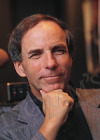HOME | ABOUT US | MEDIA KIT | CONTACT US | INQUIRE
HOME | ABOUT US | MEDIA KIT | CONTACT US | INQUIRE
Other than in battle—and I’m not even sure of that—no field of endeavor tests the mettle of a leader more than a summer camp.

A camp director must manage not only his youthful subalterns, the counselors, but he must also assume responsibility for their charges, the campers. Gen. George Patton never had to counsel a whiny 8-year-old bedwetter or pull a rutting young couple out of the bushes. Something tells me he did not have the temperament for either.
I write with some authority on this subject. Between the ages of 15 and 25, I worked at seven different camps: YMCA, inner-city Boys Club, CYO, suburban Boys Club, a private woke camp for urban waifs, Boy Scouts, and 4-H. I worked successively as dishwasher, counselor, unit leader, waterfront director, rifle instructor, and program director. I did well at camp. I changed jobs and camps because I liked variety.
The camp directors ranged from Captain Bligh to Lieutenant Calley, and everything in between. At the first Camp Calley, an anarchic inner-city one, a kid got shot. At the second Camp Calley, the woke one, a kid got stabbed, and I got crowned with a rock the size of my open hand. I still have the scar to prove it.
At Camp Bligh, nothing bad happened. Nothing good, either. We all lived in fear, too afraid even to mutiny. As to the 4-H experience, the camp scarcely needed a director. These were the best, most responsible kids on the planet. They could all but manage themselves.
It was at the CYO camp, Camp Christ the King, that I encountered the best leader I would ever work under, anywhere. Unlike most jobs, a camp is literal 24/7. You don’t get to go home at 5 o’clock. Your boss is potentially in your face every moment of the day. The quality of his leadership matters. A lot.
The previous summer I had spent at Camp Lord of the Flies and was happy to come home with my kneecaps intact. I was not keen on going back to another camp. Plus, at 17, I could drive. Needing money for gas and the social life I imagined for myself, I took a summer job selling encyclopedias door-to-door.
I lasted one night. No, make that one hour. After having 10 or so doors slammed in my face, I retreated to the local diner and waited for my manager to pick me up. Ever since then, I have been kind to cold callers of all sorts, especially ungainly adolescents selling things door-to-door.
Despite my misadventure, a camp job was still available. It was mine for the asking. I had one reservation—a major one. The camp director was to be my brother Billy—or “Bill” as he demanded I call him in public. Were I to take the job, not only would I have my brother as boss—he was seven years older—but I would also be the youngest counselor in camp. I imagined slumping around all summer with mean people whispering behind my back about nepotism and worse.
It didn’t work out that way. The summer proved magical. The magic had little to do with me, and almost everything to do with Billy. Having worked under any number of lesser bosses in the years since, I have been able to distill from my brother’s performance what it takes to be a great leader. Not all of it, unfortunately, can be taught.
First perhaps is authority. Billy exuded it. As a 240-pound former defensive lineman, he brought a physical presence to the job that spoke for itself. Size is not essential to be a good leader of men or women, but it helps. It helped, too, that Billy was the oldest of four siblings. He was used to bossing people around and had abandoned bullying as a technique years earlier. Indeed, he hadn’t punched me since I was 10—my left arm is still a little numb. Even before hyper-sensitive employees took over the American workplace, it has never paid to bully. As Billy told me, an adult should never be yelled at.
An underestimated virtue for any leader is enthusiasm. At a camp it was indispensable. A good director inspires his charges to embrace the games, songs, and traditions that can turn buses full of wee, homesick strangers into a spirited community of happy campers. At Christ the King, the counselors and the campers eager-ly bought into this culture, unaware that Billy himself had largely created it in the week or so before they arrived.
Critical too is trust. A good leader delegates. Not since JFK picked brother Bobby to be attorney general had an older brother put as much trust in a younger one as Billy did in me. Despite my age, Billy chose me to lead overnight canoe trips down the Delaware. This was the plummest assignment in camp but potentially the riskiest. Lots could go wrong. Such was Billy’s authority that no one questioned the wisdom of his choice. His star burnished mine. Shining with reflected glory, I vowed to live up to his expectations. That is the way trust works.
Speaking of wisdom, there is no leadership virtue more essential. I would define wisdom as the ability to think through the consequences of all major decisions and, without sacrificing one’s integrity, to choose the path of highest rewards. The metrics for this virtue are most easily calculated in the negative, namely screw-ups, tantrums, betrayals, miscalculations, gaucheries, rebellions. That summer with Billy, I saw none of the above.
The following year, I had two weeks to kill at summer’s end and found an opening at Christ the King. Billy had since moved on. His former assistant, otherwise a good guy, had allowed Camp Paradise Lost to descend into chaos. It was that quick.
Yes, leadership matters. A lot.
Leave a Reply